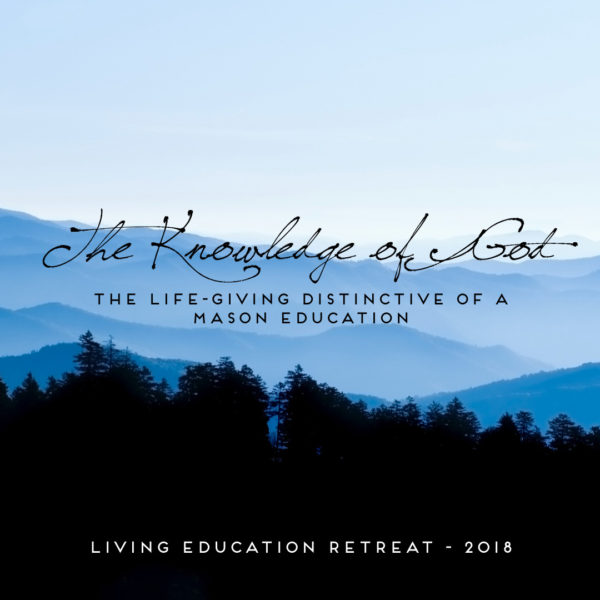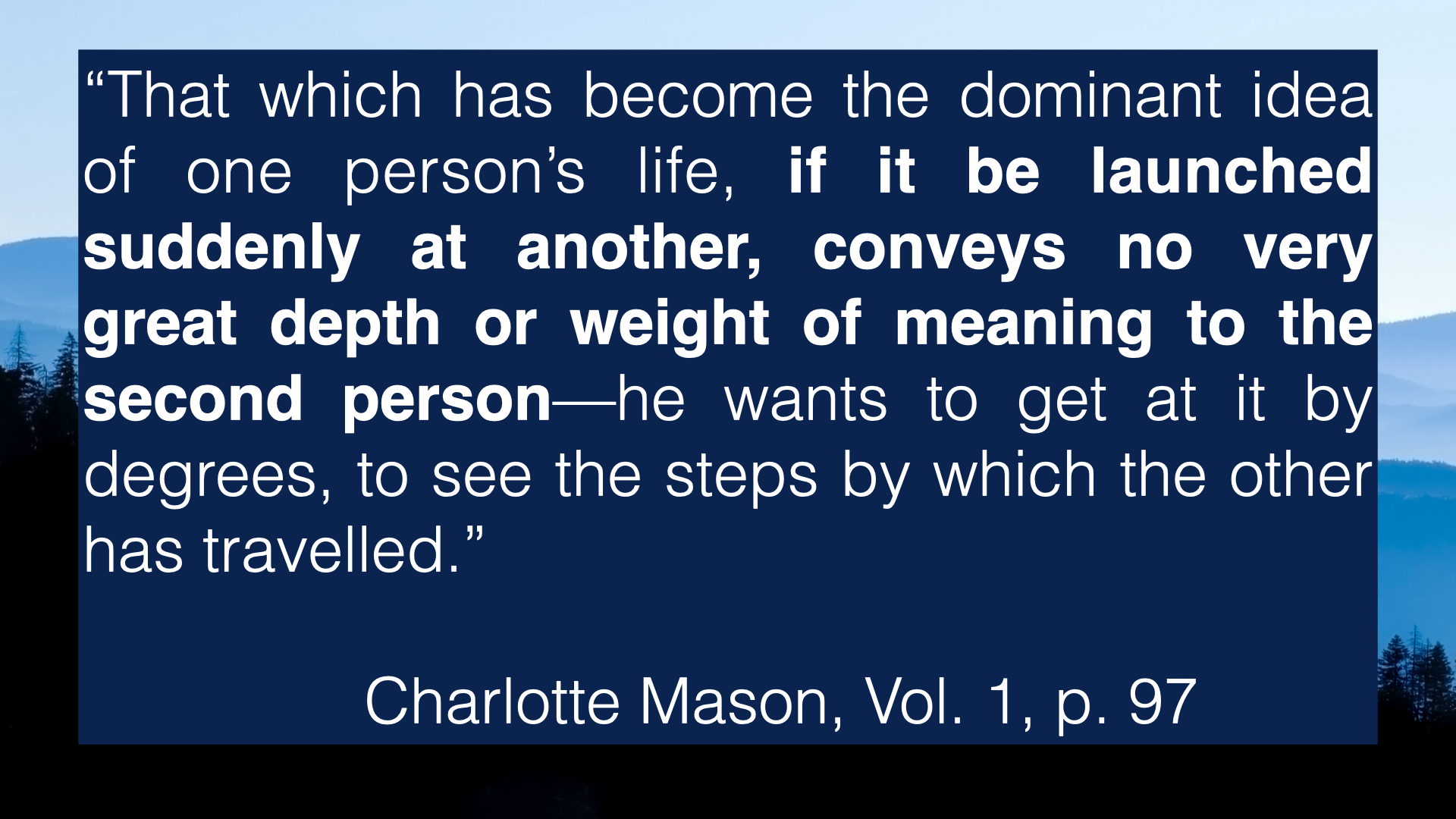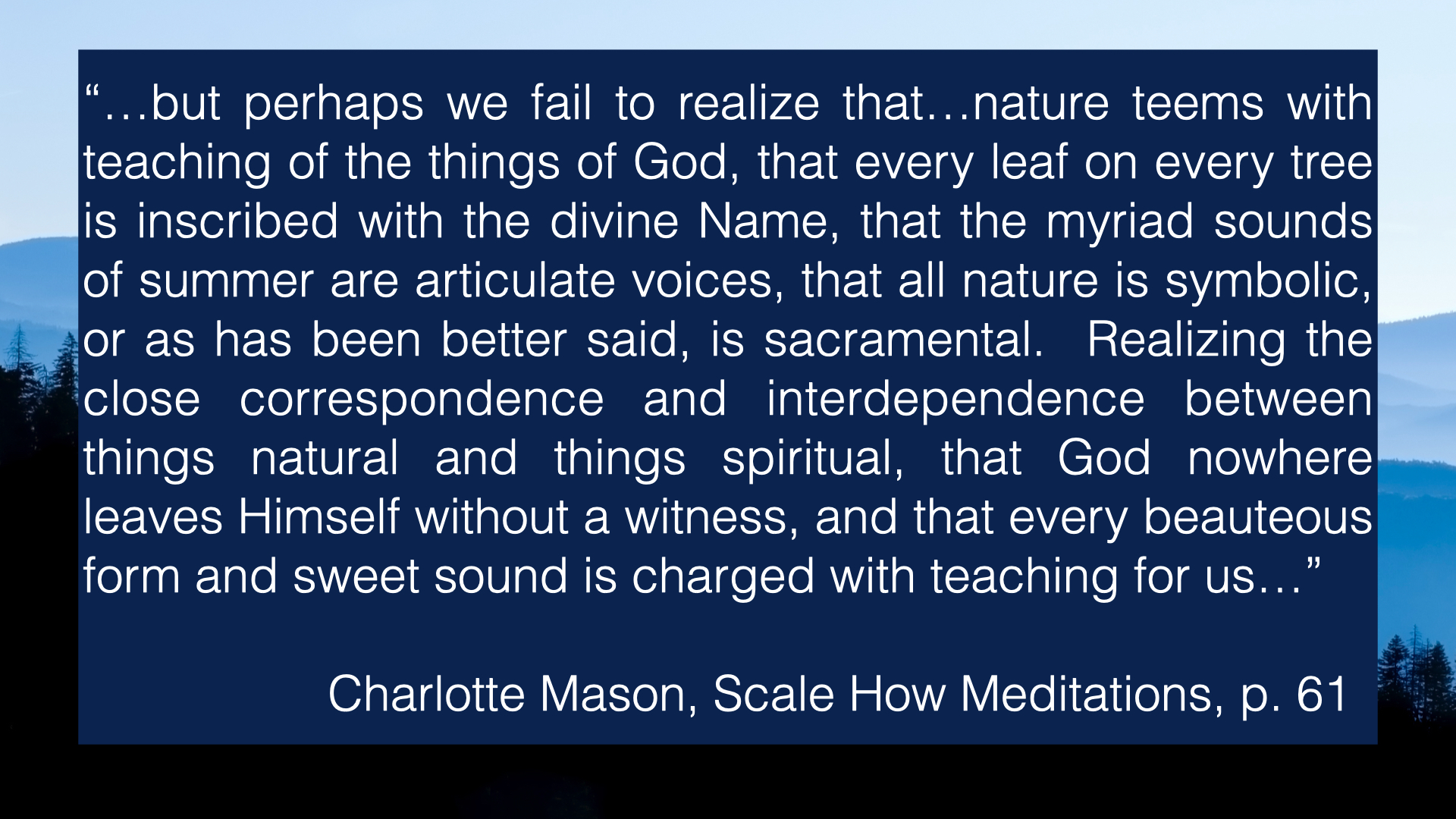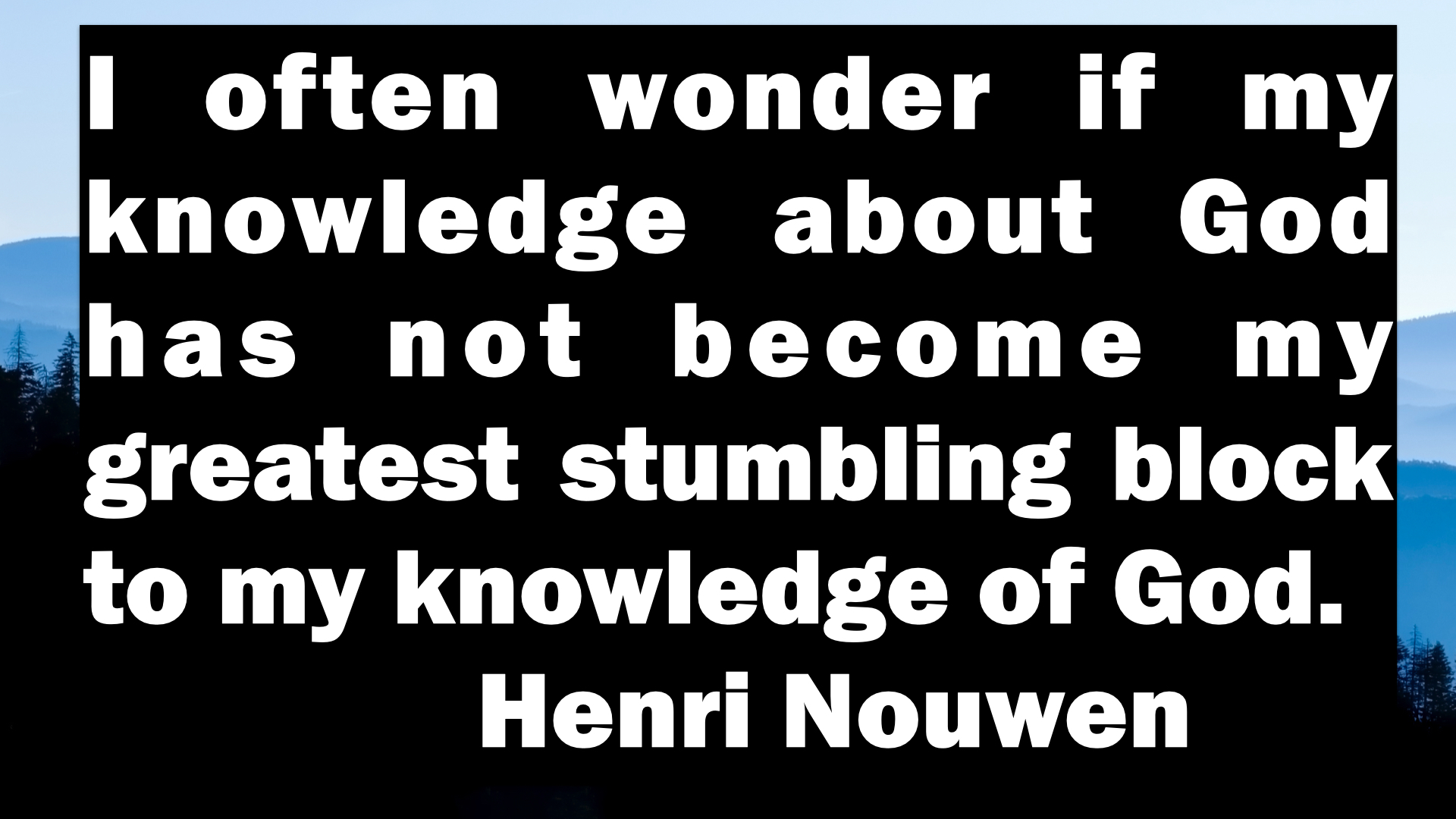The Knowledge of God: The Life-giving Distinctive of a Mason Education

Just two paragraphs into the preface of Mason’s six volumes, the reader is invited to feast upon this simple living idea:
“…the knowledge of God is the principal knowledge, and the chief end of education.”
What did Charlotte Mason mean by this statement? As Mason educators, do we read this statement with the careful consideration it deserves? What does it look like to make educational decisions for our students with this “chief end” always in mind? Does our own knowledge of God (and our ongoing pursuit of it) have a lasting effect on the lives of our children? How does the knowledge of God differ from knowledge about God? As a father, pastor, and educator, these are some of the questions I’ve been asking myself recently. When I read Mason’s statement, I instinctively know there lies within it a call to something deeper than the 15-minute Bible lesson I share with my family at the beginning of each school day.
Together, let’s explore further what Mason is suggesting…
“…because every human soul has capacity for the knowledge of God; not for mathematics, perhaps, nor for science, nor for politics, but for that vast knowledge which floods the soul like a sea to swim in––the knowledge of God.”
Charlotte Mason, vol. 4, p 183
Resources:





